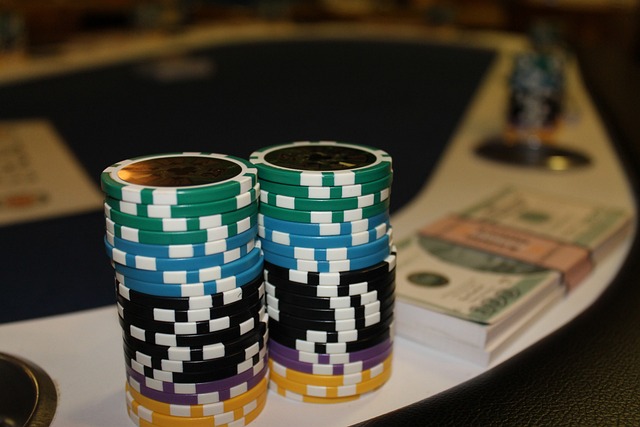In the ever-evolving world of digital gambling, new technologies constantly reshape the player experience. The latest buzz centers around NFTs—Non-Fungible Tokens—and their potential to transform online casinos. But is this just a flashy trend designed to ride the crypto wave, or a genuine step forward in how players engage with games and platforms?
NFTs, already popular in art and gaming spaces, are beginning to appear in gambling ecosystems in ways that offer ownership, exclusivity, and customization. As blockchain tech continues to gain traction, online casinos are experimenting with NFT integration for everything from in-game assets to loyalty programs and even branded virtual experiences.
To assess whether NFT integration is here to stay or just a phase, let’s explore how NFTs are currently used in online casinos and what the future might hold.
What Are NFTs and Why Are They Entering the Casino Space?
NFTs are unique digital tokens that represent ownership of a specific asset on a blockchain. Unlike cryptocurrencies such as Bitcoin or Ethereum, NFTs are non-interchangeable, meaning each one is distinct and cannot be traded on a one-to-one basis.
In the online casino space, NFTs are being explored for several reasons:
- Player ownership of assets or rewards
- Tradable in-game items with real-world value
- Exclusive access to certain games or VIP areas
- Custom avatars or table skins for a personalized experience
This shift introduces a new layer of interactivity and control for players who are used to traditional, centralized platforms where rewards are temporary and locked within the site.
How Online Casinos Are Using NFTs Today

While NFT integration in gambling is still in its early stages, some pioneering casinos and gaming platforms have already implemented practical use cases:
1. Player-Owned Assets:
NFTs can represent slot skins, virtual poker tables, or exclusive avatars. These items can be bought, sold, or even rented on marketplaces. Players gain a sense of ownership and uniqueness, turning ordinary features into tradable assets.
2. Loyalty Rewards and VIP Access:
Casinos can issue NFT-based rewards that function as membership tokens or unlock specific benefits. For example, an NFT could grant a user access to higher betting limits, exclusive tournaments, or better cashback rates.
3. Collectibles and Gamification:
Some casinos have introduced NFT collectibles that players earn by completing challenges or reaching milestones. These collectibles can be displayed, traded, or even combined for special perks.
4. Cross-Platform Utility:
NFTs aren’t confined to a single site. Some projects aim to create NFTs that work across different gambling platforms, forming a larger interconnected ecosystem where your digital assets follow you.
Benefits of NFTs in Online Casinos
NFT integration brings several advantages that could redefine how players experience digital gambling:
- Transparency: NFTs are recorded on public blockchains, ensuring clear proof of ownership and history.
- Value Retention: Unlike traditional bonuses or skins that vanish when an account is closed, NFTs can be held indefinitely or resold.
- Community Engagement: Casinos can foster loyalty and build tight-knit communities by offering unique NFTs that reflect player status or achievements.
- Monetization Opportunities: Players can profit from their digital assets by trading them with others, introducing a new layer of play-to-earn mechanics.
These features make the gambling experience more interactive, personal, and potentially profitable.
Challenges and Risks of NFT Integration

Despite the potential, several obstacles and risks may prevent NFT adoption from becoming mainstream in online casinos:
- Regulatory uncertainty: Gambling laws already vary widely, and the inclusion of NFTs introduces a new gray area involving digital asset ownership and tax implications.
- Volatility: The value of NFTs can fluctuate wildly, leading to unpredictable experiences for players who treat them as investments.
- Security concerns: NFTs are stored in wallets that may be vulnerable to hacks or user error, increasing the importance of technical literacy.
- Market saturation: If too many casinos launch poorly planned or low-value NFT projects, players may lose trust in the concept altogether.
For NFT integration to be sustainable, platforms must balance innovation with security, regulation, and meaningful utility.
Is NFT Gambling Just a Fad or the Future?
While some NFT-based casino initiatives may fade due to poor execution or speculative hype, the underlying concept has staying power. The idea of digital ownership, tradeable in-game assets, and personalized player experiences fits perfectly with the decentralized ethos of blockchain gambling.
As more users demand transparency, control, and interactivity, NFTs may become a cornerstone of modern iGaming. Casinos that invest in quality NFT ecosystems—with real value and cross-platform support—stand a better chance of driving long-term engagement.
Moreover, as Web3 technologies mature and integrate with virtual worlds and metaverses, NFTs could play a central role in building immersive casino experiences where players truly own their identity and inventory.
NFT integration in online casinos is more than just a buzzword—it’s a growing movement that reflects broader shifts in online ownership, personalization, and digital economies. While not every experiment will succeed, the concept aligns with the future of gambling: one where players are not just participants, but stakeholders with assets they control.
As blockchain adoption accelerates and gaming technology evolves, NFTs may become a standard feature—not just a trend—shaping the next generation of online casino experiences.
